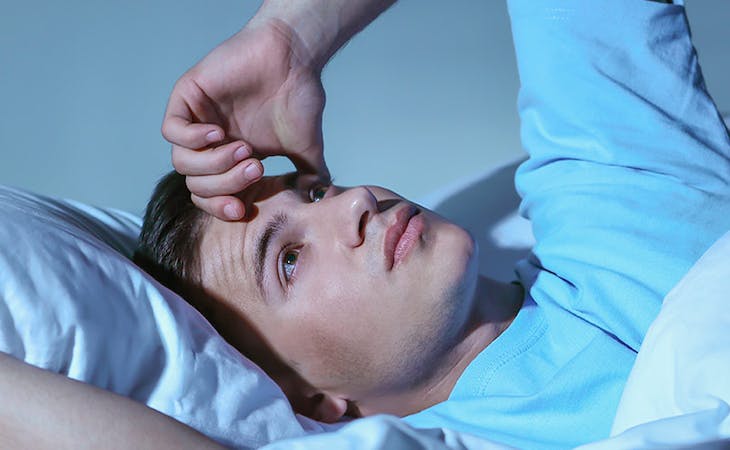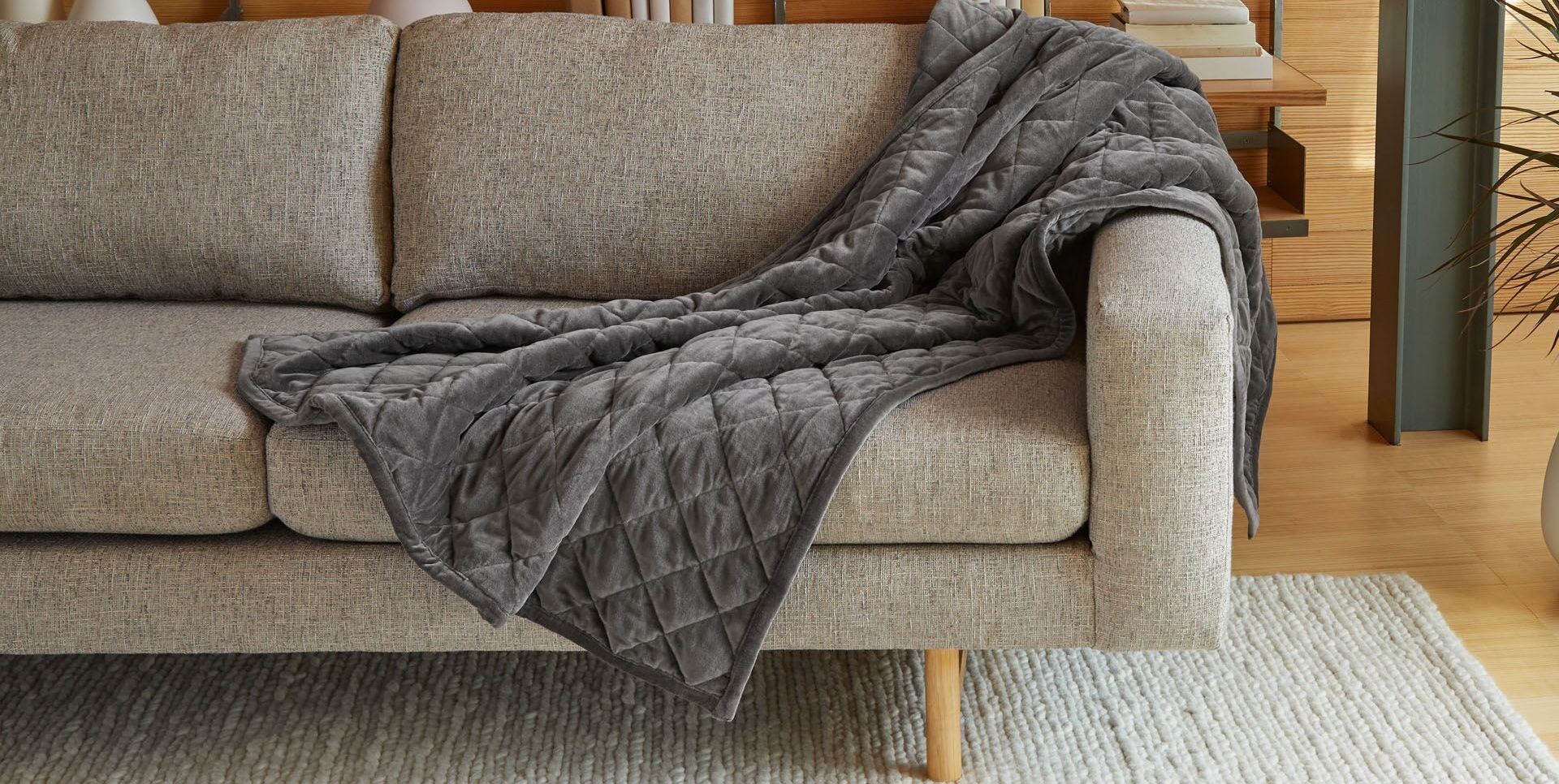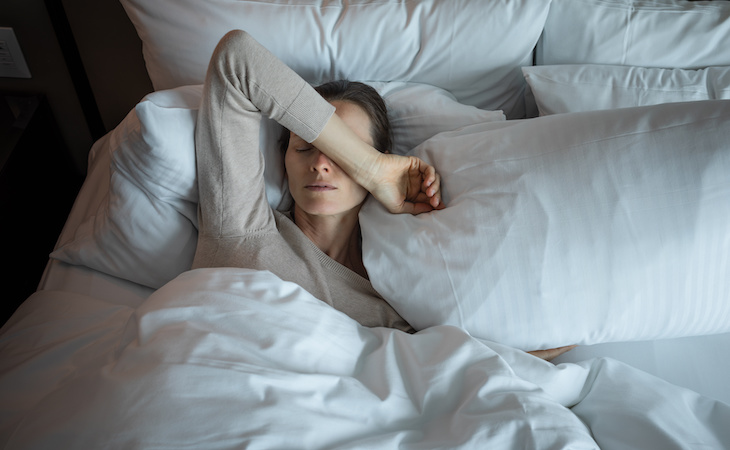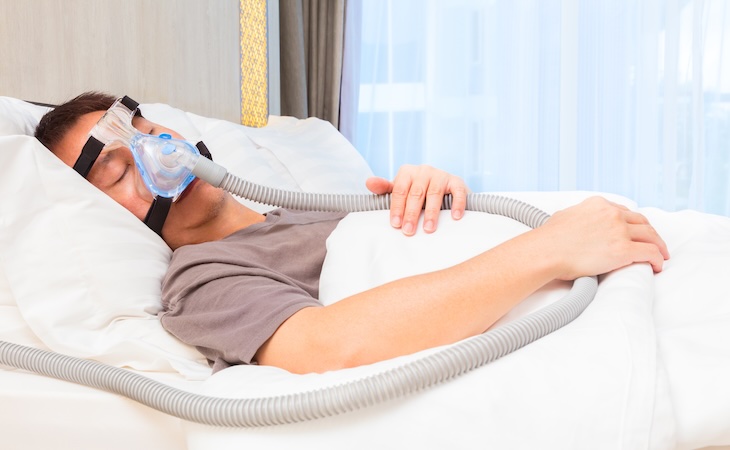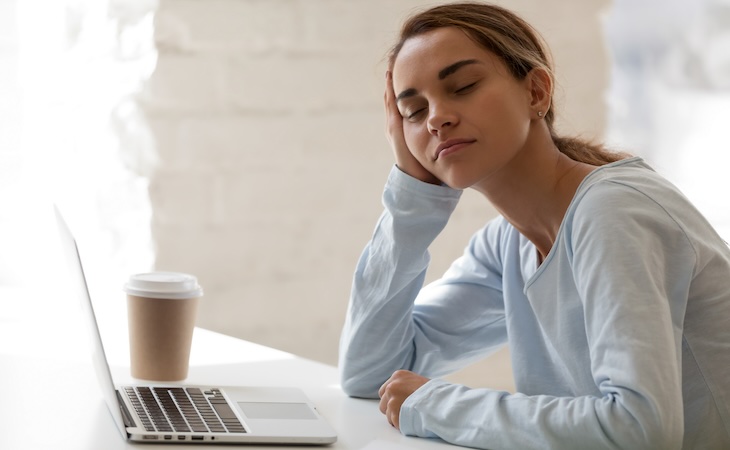Do your thoughts start racing as soon as you close your eyes at night? Maybe you’re replaying a conversation you had with your boss that day, or tomorrow’s lengthy to-do list starts running through your head. If you’re one of the more than 40 million Americans dealing with anxiety, it may be affecting your sleep—even if you don’t realize it.
Anxiety and trouble falling asleep can become a vicious cycle, to the point where it’s hard to tell if you can’t sleep because you’re anxious or you’re anxious because you can’t sleep. This isn’t all in your head: Scientists call the relationship between sleep and anxiety “bidirectional,” meaning that sleep problems can trigger anxiety and vice versa. A recent study published in the journal Nature Human Behaviour even found that a sleepless night can increase anxiety by up to 30%.
So what can you do to sleep better? The first thing you need to do to solve this complicated problem is to understand anxiety and its symptoms.
How do you know if you have anxiety?
Just because you’re stressed or worried, that doesn’t mean you have an anxiety disorder. While we all experience periods of anxiety brought on by outside events, Generalized Anxiety Disorder involves chronic anxiety that often comes on without a trigger. However, life events can increase your risk of developing an anxiety disorder, especially if you already have certain risk factors.
Researchers are still learning the causes of anxiety disorders. Studies have found that anxiety may run in families. Some scientists also believe anxiety may have a biological basis—meaning it originates in patients’ bodies and isn’t just in the brain. (Learn about how anxiety can cause maladaptive daydreaming.)
Symptoms of Generalized Anxiety Disorder include:
- Restlessness
- Feeling tense or on-edge
- Fatigue
- Trouble concentrating
- Irritability
- Muscle tension
- Intrusive thoughts
- Excessive worrying
- Difficulty falling asleep or staying asleep
The best way to figure out if you have anxiety is to keep track of your symptoms and address them at your next doctor’s appointment. While Generalized Anxiety Disorder is a condition in itself, anxiety can also have underlying causes. It’s important to talk to your doctor to rule out other serious health concerns, such as heart problems.
How do you ease anxiety to sleep better?
“The first step people with anxiety should make is to try to go to bed earlier and focus on achieving a minimum of eight hours of sleep,” says Nikola Djordjevic, MD, physician and co-founder of MedAlertHelp.org. “Those suffering from anxiety should adjust their environment and give some space to work on their sleep.” (Learn why anxiety can make it harder to fall asleep alone.)
Djordjevic says relaxing music, reading before bed, and clean sheets are all things that can help you fall asleep sooner. Exercise and making small dietary changes—like eating dinner earlier—may help too, he adds.
Listen to composer Barry Goldstein’s music playlist for deep relaxation before bedtime:
Deep breathing is another anxiety-relieving strategy you can try. “One simple technique is to practice breathing slowly, deeply, and rhythmically,” says David Godot, PsyD, CEO and clinical director of the Psych Lab Psychology Center in Long Beach, Calif. “Spend at least 10 to 15 minutes on this, gradually relaxing the muscles of your chest and belly as you slowly draw in full breaths. Establish a rhythm that works for you by counting to five on the in-breath and again on the out-breath.” Godot also suggests practicing mindfulness before bedtime.
Weighted blankets have also been proven to ease anxiety symptoms. Using these heavier blankets can help you calm down and keep you relaxed during the night. The feeling is akin to getting an extended hug or being tucked in when you were a kid.
Whatever you do, don’t lie in bed awake, fretting about your inability to sleep. If it takes you more than 20 minutes to fall asleep, get up and do part of your routine again. Make yourself a cup of herbal tea or read a book—the old-fashioned kind. Avoid screens, because the light is stimulating and will keep you awake.
Keep in mind that what helps another person manage their anxiety may not work for you, so it may take you a while to find your ideal routine. That’s something Lindsay Hamilton, a freelance writer in Connecticut who has anxiety, learned after years of trial and error.
Deep breathing exercises, for instance, don’t have much of an effect on her. “If I’m awake with physical anxiety symptoms, like overthinking or shortness of breath, I need to breathe calmer, but deep breathing exercises don’t work for me,” says Hamilton. “So I put on an episode or two of Friends so I can laugh—like really laugh—and it helps me calm down enough to fall asleep.” While most scientific research finds that screens disrupt your sleep, some experts say that if watching TV before bed relaxes you, it’s OK to do.
Hamilton adds that sticking to a simple, consistent bedtime routine (which has been shown to improve sleep and overall health) has helped ease her anxiety. “I have to brush my teeth right before bed and then read a few pages of a book in bed before I sleep,” she says. “It lets my body and my mind know that it’s sleep time.”
What about anxiety medication?
If at-home anxiety remedies aren’t working—and you have insomnia that significantly impacts your quality of life—talk with your doctor. In this situation, the Anxiety and Depression Association of America notes that medication may benefit you.
Are you having trouble sleeping? Here are expert-approved tips for dealing with insomnia.

